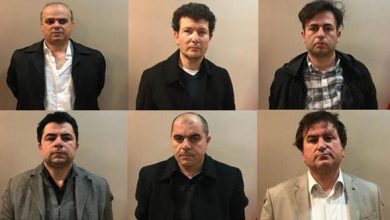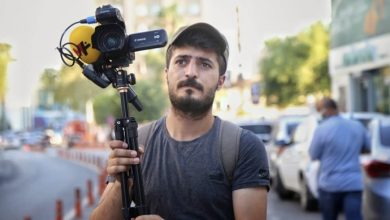One in 500 in Turkey victim of torture, says Human Rights Foundation chairwoman
The number of lawsuits against civilians almost doubled in 2018, from approximately 26,000 cases opened in 2017, the TİHV chairwoman said.

As many as one in every 500 citizens in Turkey may have been a victim of torture, Şebnem Korur Fincancı, leading forensic medicine expert and chairwoman of the Human Rights Foundation of Turkey (TİHV), told news website Duvar on Saturday.
A total of 163,032 investigations were opened against members of the public for “resistance” against the police – failure to cooperate with their requests – in 2018 alone, while civilians’ complaints against the police of torture and mistreatment resulted in 2,196 investigations, Fincancı said.
Complaints by officers resulted in 48,064 lawsuits, while only 766 of complaints made by members of the public made it to court, according to Justice Ministry data compiled by Fincancı.
“Extrapolating to Turkey’s population, we can deduce that one in every 500 people in Turkey has resisted a public officer or arrest,” she said.
“We believe this shows that one in every 500 people in Turkey have been subjected to torture,” she continued, as “security officers file complaints of resisting a public officer or arrest to intimidate victims of torture and prevent people from filing complaints.”
Among the few cases that are accepted, there are those where prosecutors charge security officers with mistreatment instead of torture, which carries a significantly lower sentence and does not require the dismissal of convicted officers. “This is critical. Somebody who has committed the crime of torture should not remain in public service,” Fincancı said.
The number of lawsuits against civilians almost doubled in 2018, from approximately 26,000 cases opened in 2017, the TİHV chairwoman said. Complete data on 2019 is not available yet, while 838 out of the 908 complaints TİHV received throughout the year were directly related to what the foundation classes as torture.
Out of the 908 complaints, 499 were about torture or mistreatment in police buildings, with 214 victims alleging torture in security vehicles. Another 170 complaints pertained to police raids in homes or offices, while 309 occurred during protests.
In 2019, TİHV received its largest number of complaints since 2000, when massive protests against Turkey ditching the ward system in favour of individual cells in prisons led to Operation Return to Life, in which Turkish security forces stormed 20 prisons.
Thirty prisoners died during the operation, while in following months 107 people including prisoners and protesters against the reform died from hunger strikes.
TİHV receives complaints from mostly political cases, possibly due to victims tortured in relation to criminal cases not being aware of the human rights organisations they could seek support from. “People arrested on criminal charges also fear that a complaint would result in harsher torture,” Fincancı said.
Systemic torture is not a recent thing in Turkey, the chairwoman said, and impunity has long been the norm.
“Back in the 1980s, you would face trial for speaking of torture, and officials would deny it. In the 1990s, they said the clear cases of torture were individual incidents,” she said. “The state would torture, and protect those who doled it out, then turn around and deny the practice. Recently, we see that the state has taken to embracing these acts, defending the perpetrators, and even affirming and justifying torture.”
As per measures implemented during the state of emergency in the aftermath of the failed coup attempt of July 15, 2016, security forces cannot be investigated for alleged crimes committed within the framework of anti-terrorism efforts. “Such a protection has relaxed security forces,” Fincancı said. “There has also been a recent increase in complaints of torture in prisons.”
“The government’s platitude of ‘zero tolerance for torture’ is aimed at international bodies, not Turkish society,” she said. “In the end, Turkey is part of several international mechanisms, and has to sustain tight economic cooperation with other countries.”
Whether international institutions “care about torture in Turkey or not, is another question,” she added.
When unknown persons sneaked into mosques to play the leftist anthem Bella Ciao from their loudspeakers in May, Turkish Interior Minister Süleyman Soylu said security forces would “find them and make them listen to prayers by the mosque,” in a lightly-veiled threat.
In 2018, Soylu said in a speech addressing police officers, “I take responsibility for whatever security forces do when they see a drug dealer. The policeman who does not break the dealer’s foot has not done his job.”
Government officials embrace and legitimise torture as they bring into question what crime the torture victim committed, Fincancı said. “Security forces fall in line with how the state approaches torture. Recently, there has been open support for it.”




